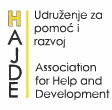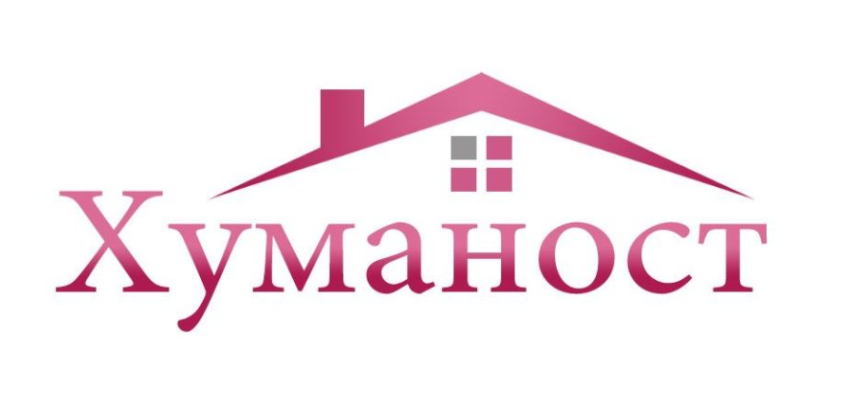
Sustainable Strengthening of Local Health Systems in the Western Balkans: Improving the health of older people affected by the COVID-19 pandemic and know-how transfer in the mobile care and support from Austria to the Western Balkans region
Project details
Lead Organisation: Hilfswerk International
Project partner: Association for Help and Development HAJDE (BiH), Partnership for Public Health (BiH), Association Humanost (North Macedonia)
Associated partners- institutes: “Center for social work” (BiH), Social protection institute Gerontology center “Novi Sad” (Serbia), Home for the mentally ill “1. October” (Serbia), and Social protection institute Hilfswerk House of support (BiH)
- Association for Help and Development HAJDE
- Partnership for Public Health
- Association Humanost
- Austrian Federal Ministry of Social Affairs, Health, Care and Consumer Protection
The aim of this project is to sustainably strengthen the local health systems in the Western Balkans. The focus is on elderly people and people with disabilities who are most affected by the COVID 19 pandemic and need psychological/social support in three countries. Through the training of professional mobile caregivers on site on the one hand and through the inclusion of older persons in society on the other hand, the health of this particularly vulnerable population group will be strengthened sustainably and beyond the duration of the project.
Expected results:
- Reduction in the number of elderly people in isolation due to the COVID-19 pandemic and a significant improvement in their psychosocial health, at least 400 people;
- Established regional virtual network of at least 10 healthy aging centres/clubs in three countries (Bosnia and Herzegovina, Serbia, and North Macedonia);
- At least 30 mobile care providers trained through the transfer of knowledge of the Austrian model for home care and assistance in Bosnia and Herzegovina and North Macedonia;
- More than 360 new volunteers to provide psychosocial and mobile support services and digital literacy for the elderly and others in need during the COVID-19 pandemic;
- Preparing and presenting a study and a policy proposal to recognise the occupation of caregivers in all three countries (Bosnia and Herzegovina, Serbia, and North Macedonia), and raising institutional awareness;
- Adapted knowledge and good practice of homecare, transferred from Austria to the Western Balkans;
Planned activities:
- Form a project team and sign contracts with partners and cooperation agreements with associated partners;
- Develop a model for online workshops, hiring experts and training the elderly to improve their digital literacy (administrative and IT support);
- Establish a virtual network of at least 10 healthy aging centres/clubs in all three countries - elaboration and organisation of centre/club activities offering courses, creative workshops, various events and counselling for the elderly;
- Obtain materials for workshops and IT equipment (tablets) for borrowing to users;
- Visibility – video making and dissemination on social networks and media, making promotional material in three countries;
- Establish mechanisms for maintaining the operation of the regional network of virtual centres, after the duration of the project;
- Develop a volunteer training programme for the provision of psychosocial and mobile support services, and digital literacy for the elderly and others in need during the COVID-19 pandemic;
- Carry out training for the first group of volunteers who will further train other volunteers;
- Prepare and carry out comprehensive training for carers under the Austrian programme, select lecturers, and select students in Bosnia and Herzegovina and North Macedonia;
- Carry out an analysis of the position of caregivers in the laws of existing structures in all three countries, and initiate dialogue to recognise caregivers as a profession, meetings with representatives of relevant institutions at the state level and regional presentation of questions and recommendations for national and local level;
- Organisation of the final conference and presentation of the joint results of the project;
Project beneficiaries:
- Vulnerable groups particularly affected by the health and socio-economic implications of the crisis caused by COVID-19 – older persons, especially women over 65, persons with disabilities, unemployed persons, beneficiaries of healthy aging centres/clubs, health facilities;
- Local communities and relevant state institutions: 1) relevant ministries for social affairs - 2 entity and 10 cantonal ministries for labour and social policy in BiH, Ministry of labour, employment, veteran and social affairs of Serbia and Ministry of labour and social policy of North Macedonia; 2) relevant health ministries - 2 entity and 10 cantonal health ministries in Bosnia and Herzegovina, the Ministry of health of Serbia and the Ministry of health of North Macedonia;
Project partners:



Project financed by:


